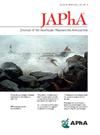有药剂师提供者地位的州的疫苗接种费用:索赔分析。
IF 2.5
4区 医学
Q3 PHARMACOLOGY & PHARMACY
Journal of the American Pharmacists Association
Pub Date : 2025-01-01
DOI:10.1016/j.japh.2024.102301
引用次数: 0
摘要
背景:药剂师行业一直在倡导联邦一级的立法,承认药剂师是医疗服务提供者,从而允许对医疗服务报销进行保险补偿,而不仅仅是处方药报销(称为医疗服务提供者身份),但这一立法尚未通过成为联邦法律。一些州政府已经颁布了对商业保险和/或医疗补助计划的认可。然而,这些法律对报销和获得医疗服务的影响还有待实证研究:比较具有提供者地位的州与不具有提供者地位的州对成人流感疫苗和带状疱疹疫苗接种的商业报销情况,以确定这些法律是否对增加药剂师所提供服务的报销产生了预期效果:我们使用了全国性索赔数据库 Marketscan 中的药品和门诊服务索赔,以检查药房在疫苗接种就诊过程中按所有代码计费的支付情况。然后,我们使用一个多变量逻辑回归模型来比较商业提供商地位州与非提供商地位州的疫苗接种就诊净收入:我们的数据集包含 2021-2022 年期间 230 万次流感和带状疱疹疫苗接种。结果:我们的数据集包含 2021-2022 年期间 230 万次流感和带状疱疹疫苗接种。我们发现,在有提供商地位的州,疫苗接种就诊产生正净收入的几率略高(带状疱疹 OR:1.03,pConclusion):这表明药剂师并未就其提供的医疗服务向支付方提交报销申请。这种缺失可能有多种原因,并限制了就这些法律对患者和医疗系统的健康和经济结果的影响提供证据的能力。需要进一步开展研究,以确定并解决实施提供者身份法律的障碍。本文章由计算机程序翻译,如有差异,请以英文原文为准。
Vaccination payments in states with provider status for pharmacists: A claims analysis
Background
Federal-level legislation to recognize pharmacists as providers and thus allow insurance reimbursement for health services claims, not just prescription drug claims (known as provider status), has been advocated for by the profession but is yet to be passed into federal law. Several state governments have enacted this recognition for commercial insurance and/or Medicaid plans. However, the impact of these laws on reimbursement and access to health services has yet to be explored empirically.
Objective
Compare commercial reimbursements for influenza and herpes zoster vaccinations for adults in provider status vs. non-provider status states to determine whether these laws have had the intended effect of increasing reimbursement to pharmacists for provided services.
Methods
We used pharmaceutical and outpatient services claims from a national claims database, Marketscan, to examine payments made to pharmacies for all codes billed during vaccination visits. We then used a multivariable logistic regression model to compare the net revenue of vaccination visits in commercial provider status states vs. non-commercial provider-status states.
Results
Our dataset contained 2.3 million vaccination visits for influenza and herpes zoster during 2021–2022. We found that the odds of a vaccination visit having positive net revenue were slightly higher in provider status states (shingles odds ratio [OR]: 1.03, P < 0.001; influenza OR 1.01:, P < 0.001). These findings are limited by the stark lack of health services claims by pharmacies in our dataset; only 0.4% of visits included any outpatient services claims, even among provider status states.
Conclusion
This indicates that pharmacists are not submitting claims for reimbursement to payors for health services they are providing. This absence could be due to several reasons and limits the ability to generate evidence about the effect of these laws on health and economic outcomes for patients and health systems. Further research is needed to identify and address barriers to implementation of provider status laws.
求助全文
通过发布文献求助,成功后即可免费获取论文全文。
去求助
来源期刊
CiteScore
3.30
自引率
14.30%
发文量
336
审稿时长
46 days
期刊介绍:
The Journal of the American Pharmacists Association is the official peer-reviewed journal of the American Pharmacists Association (APhA), providing information on pharmaceutical care, drug therapy, diseases and other health issues, trends in pharmacy practice and therapeutics, informed opinion, and original research. JAPhA publishes original research, reviews, experiences, and opinion articles that link science to contemporary pharmacy practice to improve patient care.

 求助内容:
求助内容: 应助结果提醒方式:
应助结果提醒方式:


